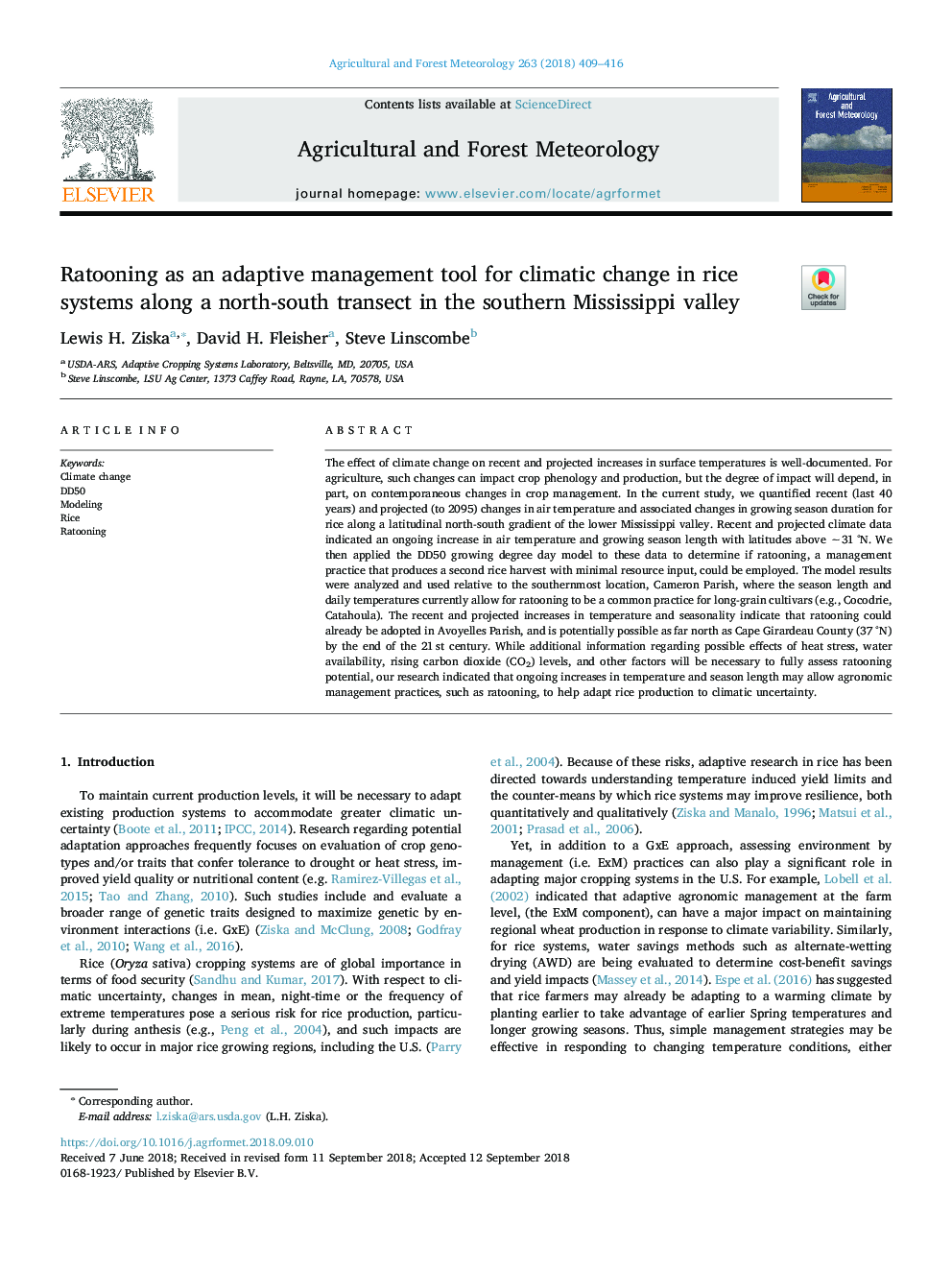| Article ID | Journal | Published Year | Pages | File Type |
|---|---|---|---|---|
| 10999988 | Agricultural and Forest Meteorology | 2018 | 8 Pages |
Abstract
The effect of climate change on recent and projected increases in surface temperatures is well-documented. For agriculture, such changes can impact crop phenology and production, but the degree of impact will depend, in part, on contemporaneous changes in crop management. In the current study, we quantified recent (last 40 years) and projected (to 2095) changes in air temperature and associated changes in growing season duration for rice along a latitudinal north-south gradient of the lower Mississippi valley. Recent and projected climate data indicated an ongoing increase in air temperature and growing season length with latitudes above â¼31â°N. We then applied the DD50 growing degree day model to these data to determine if ratooning, a management practice that produces a second rice harvest with minimal resource input, could be employed. The model results were analyzed and used relative to the southernmost location, Cameron Parish, where the season length and daily temperatures currently allow for ratooning to be a common practice for long-grain cultivars (e.g., Cocodrie, Catahoula). The recent and projected increases in temperature and seasonality indicate that ratooning could already be adopted in Avoyelles Parish, and is potentially possible as far north as Cape Girardeau County (37â°N) by the end of the 21âst century. While additional information regarding possible effects of heat stress, water availability, rising carbon dioxide (CO2) levels, and other factors will be necessary to fully assess ratooning potential, our research indicated that ongoing increases in temperature and season length may allow agronomic management practices, such as ratooning, to help adapt rice production to climatic uncertainty.
Keywords
Related Topics
Physical Sciences and Engineering
Earth and Planetary Sciences
Atmospheric Science
Authors
Lewis H. Ziska, David H. Fleisher, Steve Linscombe,
